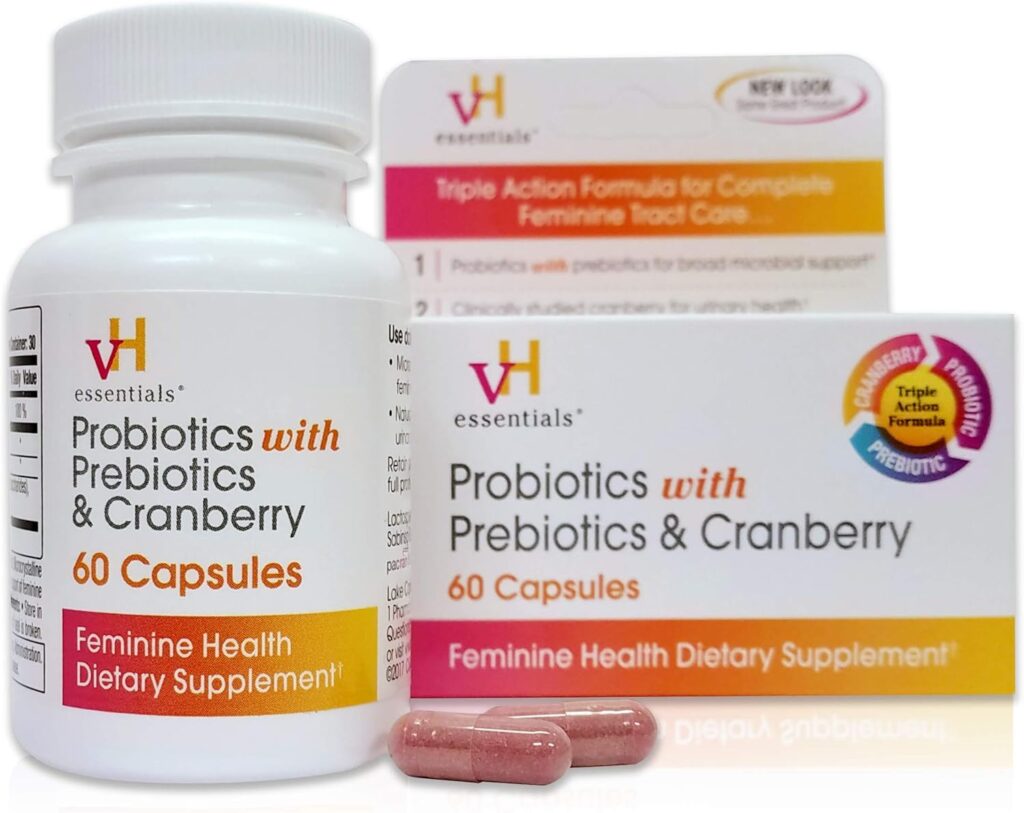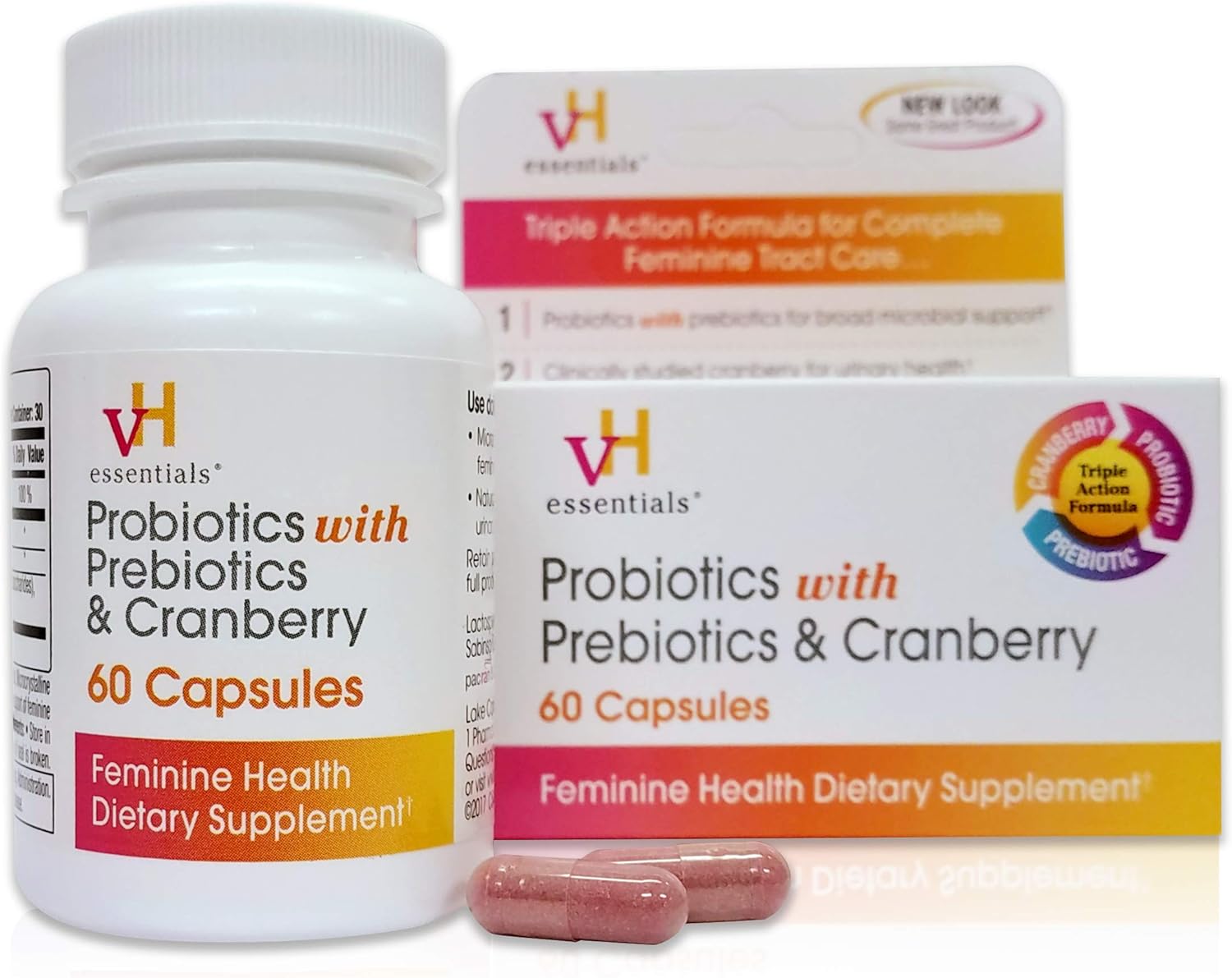
Womens Probiotics: Unlocking the Secrets to Gut Health and Overall Wellbeing
In recent years, the spotlight on gut health has intensified, revealing its profound impact on overall wellbeing. Among the various strategies for nurturing a healthy gut microbiome, womens probiotics have emerged as a particularly promising avenue. But what exactly are womens probiotics, and why are they so crucial for women’s health? This comprehensive guide delves into the world of womens probiotics, exploring their benefits, the science behind them, and how to choose the right one for your individual needs. We’ll explore the types of womens probiotics, their effectiveness, and some key considerations.
Understanding the Gut Microbiome and Its Importance
The gut microbiome is a complex ecosystem of trillions of microorganisms, including bacteria, fungi, viruses, and other microbes, residing in the digestive tract. This intricate community plays a vital role in various bodily functions, including:
- Digestion and Nutrient Absorption: Gut bacteria help break down complex carbohydrates, fibers, and other nutrients, making them more accessible to the body.
- Immune System Regulation: A significant portion of the immune system resides in the gut, where it interacts with the microbiome to distinguish between harmful pathogens and beneficial microbes. A healthy microbiome helps to strengthen the immune response and protect against infections.
- Mental Health: The gut-brain axis, a bidirectional communication pathway between the gut and the brain, highlights the influence of the gut microbiome on mood, cognition, and mental health. Imbalances in the gut microbiome have been linked to anxiety, depression, and other mental health disorders.
- Hormone Regulation: The gut microbiome influences estrogen metabolism. Certain bacteria in the gut, known as the estrobolome, can impact estrogen levels, which can affect menstrual cycles, fertility, and overall hormonal balance in women.
Why Are Probiotics Important for Women?
While gut health is essential for everyone, womens probiotics offer unique benefits tailored to the specific physiological needs of women. These benefits include:
- Vaginal Health: The vagina, like the gut, has its own microbiome, dominated by Lactobacillus bacteria. These bacteria produce lactic acid, which helps maintain a healthy vaginal pH, preventing the overgrowth of harmful bacteria and yeast. Womens probiotics, especially those containing Lactobacillus strains, can help restore and maintain a healthy vaginal microbiome, reducing the risk of bacterial vaginosis (BV), yeast infections, and urinary tract infections (UTIs).
- Urinary Tract Health: UTIs are more common in women than men due to anatomical differences. Certain probiotic strains can help prevent UTIs by inhibiting the adhesion of harmful bacteria to the urinary tract lining.
- Digestive Health: Women are more prone to certain digestive issues, such as irritable bowel syndrome (IBS), than men. Womens probiotics can help alleviate symptoms of IBS, such as bloating, gas, abdominal pain, and irregular bowel movements.
- Immune Support: A strong immune system is crucial for overall health and well-being. Womens probiotics can help boost immune function by promoting the growth of beneficial bacteria in the gut, which in turn strengthens the immune response to infections and other threats.
- Hormonal Balance: As mentioned earlier, the gut microbiome plays a role in estrogen metabolism. By promoting a healthy gut microbiome, womens probiotics can help regulate estrogen levels and support hormonal balance, potentially alleviating symptoms of PMS, menopause, and other hormone-related conditions.
Key Probiotic Strains for Women’s Health
Not all probiotic strains are created equal. Certain strains are more effective for specific health conditions than others. When choosing womens probiotics, look for products containing the following strains:
- Lactobacillus rhamnosus: This strain is well-researched for its ability to prevent and treat UTIs and vaginal infections.
- Lactobacillus reuteri: Similar to L. rhamnosus, L. reuteri is beneficial for vaginal health and can help prevent yeast infections and BV.
- Lactobacillus acidophilus: This strain is commonly found in yogurt and fermented foods and is known for its ability to improve digestion and boost immunity.
- Lactobacillus gasseri: Studies suggest that L. gasseri may help with weight management and metabolic health.
- Bifidobacterium bifidum: This strain is important for overall gut health and can help alleviate symptoms of IBS.
Choosing the Right Womens Probiotics Supplement
With so many womens probiotics supplements available on the market, it can be challenging to choose the right one. Here are some factors to consider:
- Strain Specificity: Look for products containing strains that are specifically beneficial for women’s health, such as those listed above.
- CFU Count: CFU (colony-forming units) refers to the number of live bacteria in each dose. A higher CFU count doesn’t necessarily mean a better product. A range of 5-10 billion CFU is generally considered effective for maintenance, while higher doses may be needed for specific health conditions.
- Delivery System: Some probiotics are encapsulated to protect them from stomach acid, ensuring that they reach the intestines alive. Look for products with a delayed-release or enteric-coated capsule.
- Third-Party Testing: Choose products that have been third-party tested for purity and potency. This ensures that the product contains the strains and CFU count listed on the label.
- Ingredients: Check the ingredient list for any potential allergens or sensitivities. Some womens probiotics may contain dairy, soy, or gluten.
- Form: Womens Probiotics are available in various forms, including capsules, tablets, powders, and gummies. Choose a form that is convenient and easy for you to take.
- Consult a Healthcare Professional: It’s always a good idea to consult with a doctor or registered dietitian before starting any new supplement, especially if you have any underlying health conditions or are taking medications. They can help you choose the right womens probiotics supplement and dosage for your individual needs.
Incorporating Probiotic-Rich Foods into Your Diet
In addition to taking womens probiotics supplements, you can also boost your gut health by incorporating probiotic-rich foods into your diet. Some excellent sources of probiotics include:
- Yogurt: Choose plain, unsweetened yogurt with live and active cultures.
- Kefir: This fermented milk drink is similar to yogurt but has a thinner consistency.
- Sauerkraut: Fermented cabbage that is rich in probiotics and fiber.
- Kimchi: A Korean side dish made from fermented vegetables, typically cabbage and radish.
- Kombucha: A fermented tea drink that is slightly effervescent.
- Miso: A Japanese seasoning made from fermented soybeans.
Potential Side Effects and Precautions
Womens probiotics are generally considered safe for most people. However, some individuals may experience mild side effects, such as gas, bloating, or diarrhea, especially when starting a new supplement. These side effects usually subside within a few days. It’s important to start with a low dose and gradually increase it to minimize the risk of side effects.
In rare cases, womens probiotics can cause more serious side effects, such as infections, in individuals with weakened immune systems. If you have a compromised immune system, talk to your doctor before taking womens probiotics.
It’s also important to note that womens probiotics can interact with certain medications, such as antibiotics. If you are taking any medications, talk to your doctor before starting womens probiotics.
The Future of Womens Probiotics Research
Research on womens probiotics is ongoing, and scientists are continually discovering new ways in which these beneficial bacteria can improve women’s health. Future research may focus on:
- Personalized Probiotics: Tailoring probiotic supplements to an individual’s unique gut microbiome profile.
- Probiotics for Specific Conditions: Developing probiotics specifically designed to treat or prevent certain conditions, such as endometriosis or polycystic ovary syndrome (PCOS).
- Probiotics and Pregnancy: Investigating the potential benefits of probiotics during pregnancy and breastfeeding.
Conclusion: Empowering Women’s Health with Probiotics
Womens probiotics offer a promising and natural approach to supporting gut health, vaginal health, urinary tract health, immune function, and hormonal balance in women. By understanding the science behind womens probiotics and choosing the right supplement for your individual needs, you can unlock the secrets to a healthier and more vibrant life. Remember to consult with a healthcare professional for personalized recommendations. Embrace the power of womens probiotics and take control of your wellbeing today! [See also: Gut Health for Women] [See also: Probiotics and Vaginal Health] [See also: Natural Remedies for UTIs]

